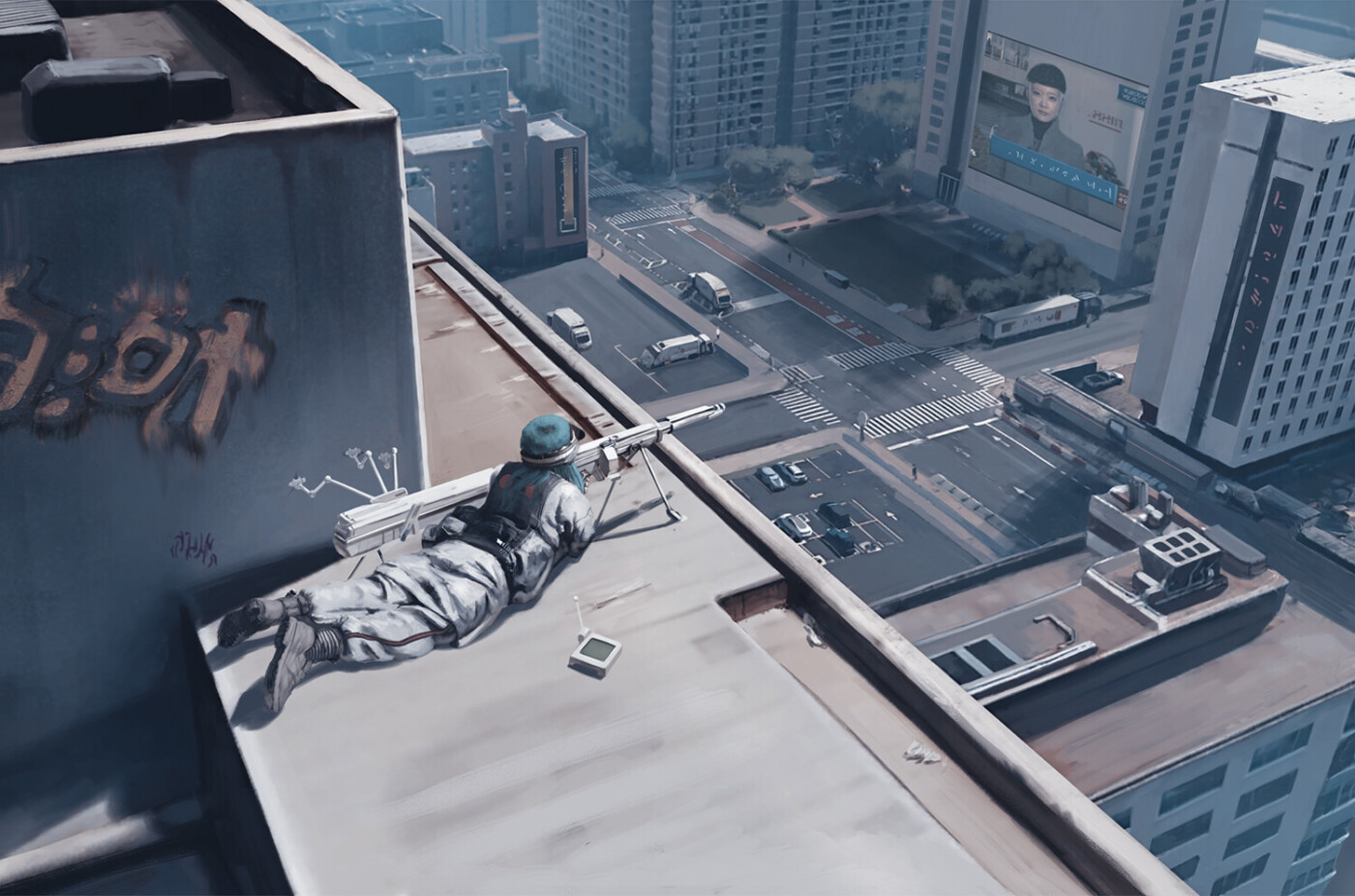Splitting the Party – GM Tips & Tricks

Thumbnail image from Scooby Doo
We’ve all heard about it. The classic “never split the party”. Why is it that people repeat it so often when in media we see it happen all the time? This is often said because some games like D&D usually revolve around keeping your party together and fighting groups of enemies balanced to confront the number of player characters playing at the time. If you have some PCs split off and fight a group of enemies on their own, the battle will be much more difficult than intended.
If we do split the party, however, there are great things that can come up from it. Some stories are heightened by having PCs split up. That’s why they always do it in the movies!
Strategy
From a strategic standpoint, you can cover more ground in less time by splitting up. Additionally, it’s far more difficult to spot a small group of individuals trying to sneak into a mansion. When infiltrating, trying to cover ground to find someone or something in a brief period of time, doing a heist, trying to flank an enemy, and many other things it makes total sense to split up. Is there a higher risk by doing so? Most of the time, yep. That’s part of the fun as well! There’s usually a risk-reward to it, meaning that you may need to properly plan how splitting the party is going to work.
In heists, there is always the hacker that works from the van outside, and the driver that plans the escape route. These two are separated from the rest of the party but play a vital role in the game. When doing these sorts of scenarios, make sure to have something happen from time to time to both groups. In the previous example, breaking the tension of the 3 spies infiltrating the gala to show that a policeman approaches the driver to ask why he is there can give some breathing room to the player characters playing the spies and draw some tension on the ones waiting outside.
Metaknowledge
Some players don’t like splitting up because as everyone is playing together, all that happens to group A is going to be heard by the players playing the characters in group B. This is called metaknowledge, and just like with metagaming, it is often associated as a bad thing. If the players in group A want to keep something they find secret from the other group they really can’t, as the other ones are right there with them at the table even though their characters aren’t in the same place. If group B falls into a trap and have a time limit to be rescued, they can’t rely on the fact that the players from group A are hearing it happening because group A PCs aren’t there. I have seen this happen all the time in my games, and there isn’t a right way of solving it. However, the one I recur more often to is establishing some sort of “social contract”.
As an example, I recently had all PCs but one go investigate a village while the other stayed with a wizard NPC they didn’t quite trust yet and another friendly NPC. As the players in the village were talking to a council, the PC that was alone got possessed by a ghost while investigating an artifact, giving a perfect opportunity for the wizard to kill the PC. This was a moment of extreme tension as there was nothing the group in the village could do to stop that from happening. They couldn’t use their metaknowledge because of the social contract we established. Luckily, the friendly NPC ended up being of help buying enough time to save the PC from the wizard. That was a close one!
Social Contract
As stated in the Metaknowledge section, there are times when splitting the party that one group ends up listening to something they shouldn’t be able to hear. How is it that we can stop this from happening? Personally, unless you can have the group physically split up, I believe you can’t. You need to state from the start as a DM that when the party splits player characters shouldn’t know what the other group is doing, even though players do. That means that the player characters these players are controlling shouldn’t base their actions on what happens with the other group. Even if you stated this and the players agreed, they might subconsciously make some decisions based on their metaknowledge. There isn’t much we can do about that if you want to keep the players engaged in the game and not looking at their cellphones while the other group plays.
One thing I have seen work is to have players take notes of the information ONLY THEIR characters know. That way, if a PC wants to tell an NPC something that player can check their notes to see if it really was their character that knew that piece of information. Of course, this relies on having your players take notes during the game, which isn’t often the case. In other words, it is difficult to have a definite solution to this problem, so the best one can do is try to create this social contract in which if someone is using metaknowledge to decide something, the others can stop them.
Engagement
It is extremely easy for engagement to be lost by group A when group B is the one playing at that moment. Is it ok for that group to go get another pizza from the oven, start chatting with their relative over the phone or check social media? That entirely depends on you! I personally have no problem in having my players use their phones during the game if they don’t have us backtrack later for not paying attention. As long as they can keep their attention both in the game and their phone, then I see no problem. Nevertheless, it is a great practice to state in session 0, or out of the game that all players should be interested both in their characters as in the ones from the other players. I’ve seen over the internet people saying that GMs should be the Player Characters’ biggest fan. In my opinion, it is always better to have all at the table be the biggest fans of everyone from the group. That way, if your character isn’t in the spotlight at the moment, you are also interested in what happens as that other PC is also someone you truly care about and are interested in hearing what happens to them.
Some RPGs better handle splitting off parties than others. In most of them, however, it is up to the GM to manage the pacing in a way that keeps all players engaged. There are some tricks I use to accomplish this. Firstly, make sure to focus for a bit on each group, jumping between the two of them. It is much better to do this rather than have one group play for two hours, and then having the other group do the same. If you transition regularly between the two you don’t give them enough time to get bored. Make sure to keep an eye on the clock so you don’t go too long with one group! Many movies and series that split the protagonists into different groups always do this. It’s also important to create good enough transitions between the groups to keep the players tense and looking to know more. I’ll explain these things in more detail below.
Interesting transitions
In order to keep players constantly engaged, you need to master how to do transitions properly. It’s actually more of an art, as there isn’t a right way of doing it and you can only become good at it with practice. However, by following some tips you will be able to do better at it. Firstly, you need to understand when the moments of tension and intrigue show up in your game. When you open a door without knowing if an enemy is on the other side, or the moment the PCs do open it and a villain is waiting on the other side with a gun in hand saying “Don’t move one bit”. These are some great examples of moments of tension, as it can also be a conversation like when a secret is finally revealed or something unexpected comes to light. Find those moments in which if you paused the game your players would jump at you forcing you to continue the game. These moments are also often used as cliffhangers, so you can read a bit more on how to do that over here.
Once you found the right moment of tension, pause that group and jump to the next one. This gives players time to start theorizing on what is going to happen and keeps them engaged even though they aren’t the ones playing at the time. If you can’t find the right moment of tension, you can recur to having an NPC appear and ask them something of importance. Let the players have that time to decide while the other group plays.
Manage time differently
Many RPGs have specific circumstances when the game slows down and focuses more on the rules aspect of it. This mostly happens during combat. When splitting two groups, if one of them enters combat and you keep jumping from one group to the other storywise, time in the group doing combat is surely going to move much slower. We group B who isn’t in combat is chatting with an NPC and spends one minute doing so should we do one hour’s worth of combat with the other group before coming back with group A? This is when it starts getting trickier. There really isn’t much of a reason why you should have both groups playing at the same time in the game. If group A travels takes a plane to another country there isn’t anything of interest going on in it, but you can play what happens when group A arrives at the country even though group B is 8 hours before in time. That way you can keep the game going without having one player group extremely bored never getting to play.
What happens if group A is 2 hours ahead of group B and group B would have made a phonecall to group A that even though they are two hours ahead they never received? Now that’s something that really doesn’t have a right answer. You can either find a reason for that to be impossible to happen (one of the groups not having phone signal or a villain redirecting the call) or just ask your players not to do that. This takes away a bit of player agency, but you can only do so much as a GM. You need to keep the game moving and stopping the game until they meet again isn’t a viable choice. You can also have them communicate with each other with the condition nothing that was already played with the group hours ahead would change, which is the approach I end up using the most.
Split off player groups
If you have the chance of splitting the player groups as a GM and playing with each on separate days of the week you can create a very interesting result. In my city-based campaign, I had one on one sessions with each player (at the beginning of the quarantine I had quite a lot of free time) that would have their stories interconnected until they finally created an Avengers-style party. They all had things to share with each other and the things that happened with one of them caused things to happen for other players. Sharing those details created an amazing experience that couldn’t have been replicated hadn’t we played individually. Luckily, the power of technology allows us to play these kinds of sessions at any time along the week. If your PCs decide to split off into separate directions during your game, consider running both groups individually. Obviously, it’s entirely possible to not have enough time to do this, and that’s ok as well. Do take it into account though if you ever have enough free time!
Conclusion
Splitting off the party into different groups can create all sorts of fantastic stories that you would not be able to experience otherwise. If you as a GM are up for it, then go ahead. I know it might be difficult for some GMs with not so much experience to try it out, and if you are not comfortable with it make sure to let your players know in advance. Even if that was the case, I hope that this article showed you enough great things that you might want to at least give it a try. It doesn’t need to be complicated and you can only get better at it by splitting the party! Even if the player characters ended up confronting a group of foes they might not be able to best, that can also create a great story! (or you can dial the numbers so it is easier for the group. You are the GM after all!)
Have you had any fantastic memorable experiences that could only have happened by splitting the party? Is there some other tip you would like to let me know? Make sure to share everything in the comments below!
If you liked this
Are you looking for some extra tips on how to properly handle tension to create better transitions? Then look no further! Here is an article in which I tell you how to create perfect tense moments





